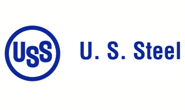Market Segment

May 7, 2021
Could USS Mon Valley Endless Caster Move Elsewhere?
Written by Michael Cowden
U.S. Steel has left open the possibility of moving its endless casting and rolling project–initially slated for its Mon Valley Works in western Pennsylvania–elsewhere.
The Pittsburgh-based steelmaker declined to say what equipment it had in hand and where it might be able to relocate it.
“We do not have any information beyond what has already been released. We continue to explore all options that support our strategy and sustainability goals,” a company spokeswoman said in an email to Steel Market Update.
![]()
“The endless caster … the largest portion of that has been built. And so we have optionality with where that might go,” U.S. Steel President and CEO David Burritt said during the company’s first quarter earnings conference call last month.
U.S. Steel has already spent more than $170 million on the caster project, and the equipment for it remains stored in Pittsburgh-area warehouses. “That could be repositioned elsewhere. And where that’s going to be positioned, of course, that’s under study,” Burritt said.
The steelmaker in an “open letter to our Pittsburgh family” said that canceling the project in Mon Valley was necessary in part because of the increased global focus on reducing carbon emissions.
“The project we had planned in 2019 would have decreased our carbon footprint, but we must now move farther and faster. Just as steel transformed the world, the world is now transforming steel,” the company said in the open letter.
U.S. Steel has said it wants to reduce greenhouse gas emissions across the company by 20% by 2030 and to be carbon neutral by 2050.
Other integrated steelmakers undertaking similarly ambitious carbon-reduction targets – such as Swedish steelmaker SSAB – are doing so by moving away from integrated steelmaking, and its reliance on the carbon-intensive coking process, and toward EAF steel production instead.
U.S. Steel also cited a slow permitting process for the project at Mon Valley Works.
“Over the past two years we have carried the ball down the field as far as possible without the issuance of the permits necessary to begin construction,” the company said in its letter. “By contrast, during this same time period, a competing steel manufacturer in another state announced a new steel mill and will be ready to make steel this year,” it said.
The competing steelmaker referenced appears to be Steel Dynamics Inc. (SDI), which in July 2019 announced plans to build a $1.9-billion flat-rolled EAF mill in Sinton, Texas, not far from Corpus Christi. SDI, which is also non-union, said on a recent earnings call that construction will be completed and the mill in production by “late summer” of this year.
U.S. Steel appeared to acknowledge in its letter that the permitting process for the Mon Valley project had been slowed by a major fire on Christmas Eve 2018 that resulted in serious environmental issues at its Clairton plant. But the company also indicated that those delays had proven costly.
“U.S. Steel agreed with the need for the (Allegheny) County Health Department to temporarily delay its permitting process for the Mon Valley Works, but this delay allowed for a consequential window of time during which we expanded our understanding of steelmaking’s future in a rapidly decarbonizing world,” the company said.
If U.S. Steel were to relocate the endless caster, it might not have to move to another integrated steel mill.
Italian steelmaker Arvedi, for example, operates a flat-rolled EAF mill that employs an “endless strip production” (ESP) technology “ideal” for installation in the minimills, according to equipment supplier Primetals Technologies.
And Primetals said in 2019 that it had agreed to supply U.S. Steel with similar equipment for Mon Valley at what was intended to be the first ESP in the U.S. and the widest ESP ever built.
The “uninterrupted” casting and rolling process allows for “significant reduction” in CO2 as well as the stringent surface quality standards demanded by automakers, Primetals noted.
U.S. Steel announced in May 2019–almost exactly two years ago–that it would spend more than $1 billion to build a “sustainable endless casting and rolling facility” at its Edgar Thomson Plant in Braddock, Pa., and a cogeneration facility at its coke plant in Clairton, Pa.
The announcement coincided with AISTech 2019, a major steel industry conference, which was held in Pittsburgh that year.
Burritt was one of the featured speakers at the event. He detailed the project during a media conference attended not only by steel industry trade publications, which typically report on such events, but also mainstream media outlets.
Cancellation of the project at Mon Valley, in contrast, was made with little advance warning and with litte fanfare during an earnings conference call.
By Michael Cowden, Michael@SteelMarketUpdate.com







